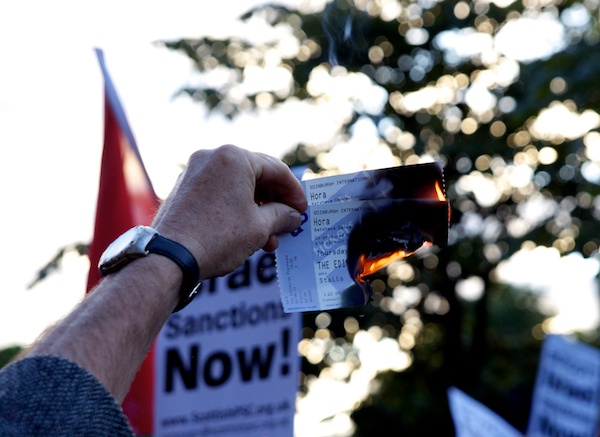Published by Spectator Life
As a teacher and lecturer, I’ve had a fair amount of indirect contact with SOAS — the School of Oriental and African Studies at London University. I first met one of its doctoral students in 2001, Continue reading
We use cookies to help you navigate efficiently and perform certain functions. You will find detailed information about all cookies under each consent category below.
The cookies that are categorized as "Necessary" are stored on your browser as they are essential for enabling the basic functionalities of the site. ...
Necessary cookies are required to enable the basic features of this site, such as providing secure log-in or adjusting your consent preferences. These cookies do not store any personally identifiable data.
Functional cookies help perform certain functionalities like sharing the content of the website on social media platforms, collecting feedback, and other third-party features.
Analytical cookies are used to understand how visitors interact with the website. These cookies help provide information on metrics such as the number of visitors, bounce rate, traffic source, etc.
Performance cookies are used to understand and analyze the key performance indexes of the website which helps in delivering a better user experience for the visitors.
Advertisement cookies are used to provide visitors with customized advertisements based on the pages you visited previously and to analyze the effectiveness of the ad campaigns.

Published by Spectator Life
As a teacher and lecturer, I’ve had a fair amount of indirect contact with SOAS — the School of Oriental and African Studies at London University. I first met one of its doctoral students in 2001, Continue reading
Published by Daily Mail
 You usually get everything represented at the Edinburgh International Festival: it caters for all self-indulgent tastes in the postmodern world of moral relativism – from binge-drinking and bigamy to buggery and blasphemy. Gradually, over the decades, the arts have aided the rehabilitation of medieval notions of sin and human vice: lust has become love; wrath is free expression; greed is a work ethic; envy is a spur to social mobility; pride is aspiration; sloth is simply genetic; and gluttony has become a human right.
You usually get everything represented at the Edinburgh International Festival: it caters for all self-indulgent tastes in the postmodern world of moral relativism – from binge-drinking and bigamy to buggery and blasphemy. Gradually, over the decades, the arts have aided the rehabilitation of medieval notions of sin and human vice: lust has become love; wrath is free expression; greed is a work ethic; envy is a spur to social mobility; pride is aspiration; sloth is simply genetic; and gluttony has become a human right.
We’ve come (or gone) a long way since the Lord Chancellor’s censoriousness was curtailed. Our theatres may indeed still be monuments to our prodigality and folly, as the Puritan preacher the Rev’d Thomas White declaimed at St Paul’s in London during the plague. But one wonders about the contemporary equivalent of his evangelical apocalyptic observation that ‘the cause of plagues is sin…the cause of sin is plays; therefore the cause of plagues is plays.’ Continue reading
Published by Daily Mail
 Day by day, minute by minute, speech by speech and word by word, the United Kingdom Independence Party looks and sounds increasingly like the Conservative Party in exile – on the economy, law and order, education, defence, patriotism, Christianity, immigration, over-regulation, tax reduction, and their support for private enterprise, traditional marriage and the family, and (of course) the thorny question of the European Union. There is no longer any credible assertion that UKIP is a ‘single-issue’ protest party or pressure group.
Day by day, minute by minute, speech by speech and word by word, the United Kingdom Independence Party looks and sounds increasingly like the Conservative Party in exile – on the economy, law and order, education, defence, patriotism, Christianity, immigration, over-regulation, tax reduction, and their support for private enterprise, traditional marriage and the family, and (of course) the thorny question of the European Union. There is no longer any credible assertion that UKIP is a ‘single-issue’ protest party or pressure group.
And now, just as we have our long-held suspicions confirmed that the Foreign Office is essentially Arabist and ever so subtly anti-Israel, with government officials outrageously asserting that Benjamin Netanyahu uses ‘the incitement issue as a delaying tactic in peace talks’, we hear that Nigel Farage is confronting the ‘strong bias’ against Israel that exists within the European Union. Continue reading